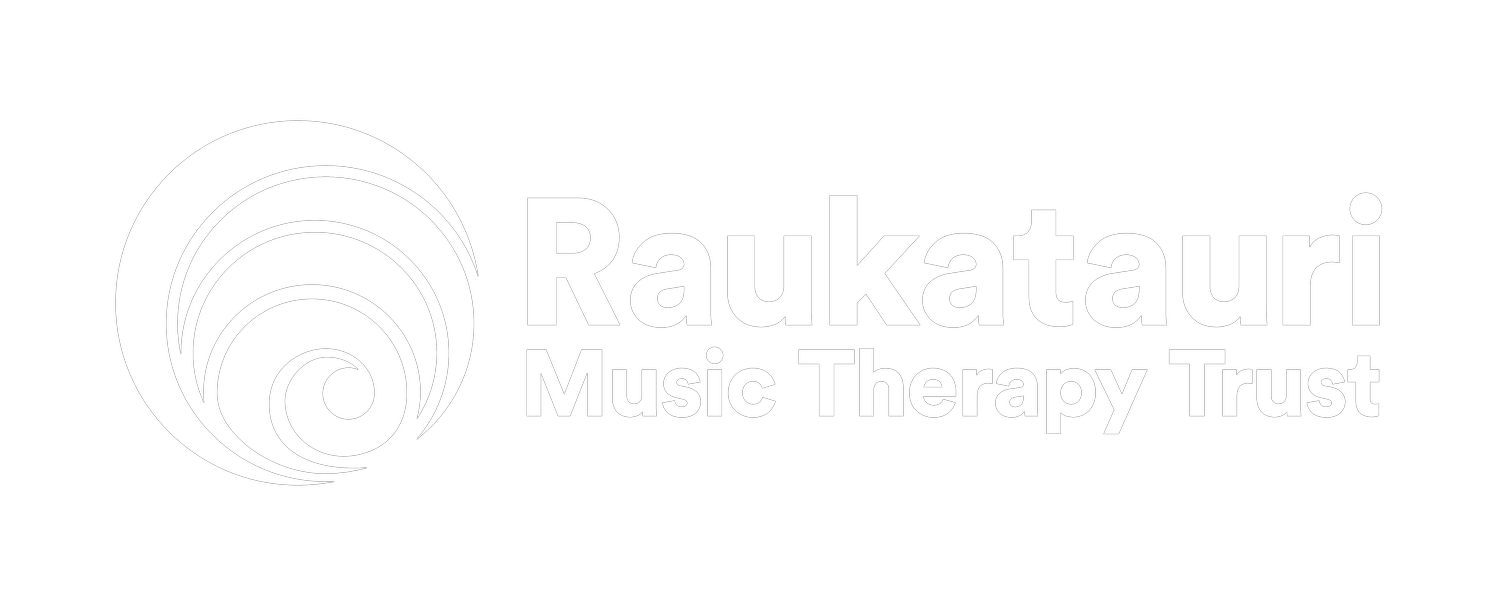One of the exciting things about working in the field of music therapy is to be a part of a young and growing discipline. At Raukatauri, we are always looking to grow, learn, and upskill in order to better serve our clients. To that end, twelve members of our team travelled down to Christchurch this August to join music therapists from all over the nation at the bi-annual Music Therapy New Zealand Symposium.
Collaboration was the theme of this year’s Symposium and music therapists working in all kinds of settings and with individuals from all walks of life shared their experiences of how collaborating with different disciplines, organisations, with whānau, clients, and with each other, has enriched their music therapy practices. In a time when it easier than ever to become disconnected, this year’s Symposium was a reminder of the power of joining together and the magic that happens when we bring our strengths together in a common goal.
Music therapy is still a relatively young practice in New Zealand, and yet music therapy as a credentialed profession emerged in the 1940s. It is widely used across the world, most notably in Europe, Australia and the United States, not only in music therapy centres but also in hospitals, hospices, schools, rest homes, mental health treatment facilities and prisons. However, music therapy is still largely unknown in New Zealand and therefore a large part of the Centre’s work to date has been in raising awareness and education of the field, along with its benefits, especially for children with disabilities. The team at Raukatauri are always striving to contribute to the understanding of music therapy in Aotearoa, and to the research that supports the benefits and effectiveness of music therapy. That’s why we were so proud that four of our Registered Music Therapists were able to present seminars about their work and research.
Angela Jeong presented the story of her client, Becky, a teenager with autism who was able to attend the Symposium with her family and share her lived-experience of what misconceptions society has surrounding autism. Angela’s presentation demonstrated the use of letter boards, an assistive communication device, to promote self-expression, and the importance of a client-centred music therapy approach. Using the letter boards to communicate with her Mum, Andrea, and her therapist, Angela, empowered Becky to write a song which she performed in person at the Symposium. This was an incredibly moving moment in which Becky was able to express her authentic self. There wasn’t a dry eye in the room and Music Therapy New Zealand was so impressed by Becky’s performance that they will be featuring her song in a short film later this year.
Ella Polczyk-Przybyla joined Raukatauri from the UK in April 2021, after a long wait due to COVID travel restrictions. At the Symposium, she presented a talk about her experience departing managed isolation and commencing work for the RMTC in Hawke’s Bay, discussing her collaborative work with Will Darbyshire, the previous Hawke’s Bay therapist in order to transition his clients to her care. Ella worked alongside Will in each session over a two-week transition period, which proved to be both challenging and really special. Ella shared the insights that she gained from this experience about working together as music therapists, and the vulnerability and the cohesion that she experienced during their music therapy transition.
Katie Pureti shared her experience with a unique collaboration between herself and Jan McConnell, Dance Movement Therapist. Their shared project focused on supporting tamariki who may have experienced trauma, and Katie’s presentation at the Symposium focused on the professional collaboration that happened between the therapists and ECE teachers, and the bicultural frameworks that underpin that shared mahi. Katie and Jan’s initial collaboration came out of a two year Ministry of Education Tai Tokerau initiative to provide professional development for early childhood centres across Northland and it was wonderful to hear learnings from this large-scale project.
Olly Lowery presented on Raukatauri's music therapy programme at Starship Children's Hospital, which is now in its third year running. He was able to share a brief history of paediatric music therapy in Aotearoa, before discussing ideas for others to be able to facilitate similar programmes around the motu. A key message of the presentation came back to the symposium theme of collaboration, with the benefits of collaborating with the Hospital Play Specialist Service and other allied health professions being significant in the development and success of the programme.
Our team had an amazing time at the Symposium, during which they were able to connect, collaborate, network and of course, empower and enrich themselves as music therapists. Attending for the first time Rachel Farrell, Raukatauri Finance and Administration Manager, found her time at the Symposium invaluable, even though she is not a music therapist. Of the weekend she said she was “incredibly proud of the Raukatauri whānau and immensely moved by many of the presentations demonstrating the remarkable and diverse music therapy services being offered across the country.”





